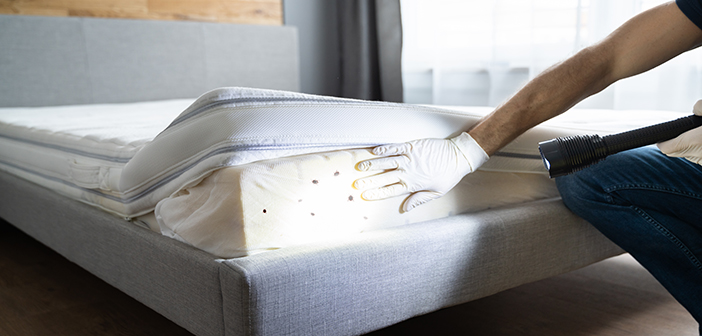As schools across England and Wales break up for the summer holidays this month, Rentokil Pest Control is warning holidaymakers to avoid bringing back unwanted bed bug infestations from their travels.
Figures from Rentokil Pest Control reveal a 65% increase year-on-year in bed bug infestations (Q2 2023 vs. Q2 2022); indicating that perhaps some advice is needed in how to effectively avoid bringing home these blood-suckers, which are notorious for finding their way into luggage, clothing, and other personal belongings.
Bed bug bites are usually found on exposed areas of skin such as the arms, legs, face and neck – and can cause skin reactions including painful rashes and most commonly, allergic reactions.
Infestations can be both distressing for individuals and detrimental to the reputation and profitability of tourist hotspots, so it’s important for both holidaymakers and tourism operators to take measures to help prevent infestations before they spread.
Paul Blackhurst, Head of Technical Academy at Rentokil Pest Control, said without knowing what to look out for, bed bugs can spread rapidly – one female adult can lay 1-10 eggs a day, and 200-500 eggs in their lifetime – meaning prompt detection and swift, effective action is key to controlling an infestation.
“High levels of hygiene, deep cleaning and the use of DIY measures will help to kill some bed bugs,’ Mr Blackhurst said.
“If you are unfortunate enough to have a bed bug infestation then professional pest controllers can offer a range of services, such as heat treatment.”


